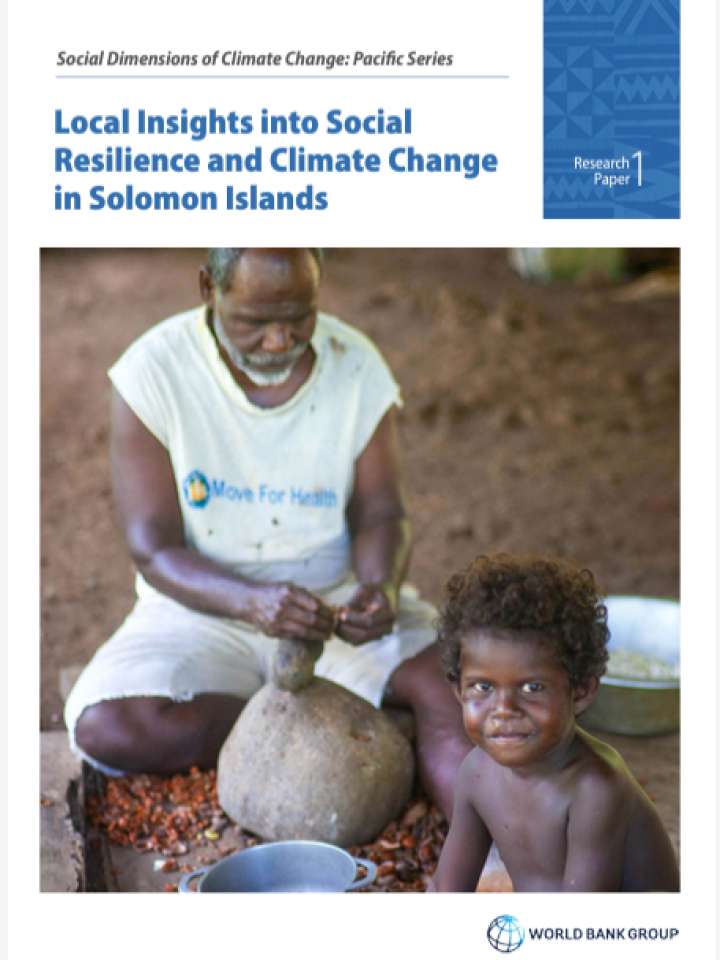Social dimensions of climate change in Solomon Islands
This research paper focuses on building the social resilience of vulnerable communities to climate change in Solomon Islands. Grounded in extensive field work incorporating qualitative and quantitative data collection in five selected coastal communities, with additional data from relevant secondary sources, the analysis seeks to deepen understanding of social resilience to climate-related risks at the community level and inform policy and investments
The principal findings of the research are:
- First, repeated climate-related shocks are exhausting the social resilience of communities.
- Second, other sources of vulnerability and stressors, such as poverty, hardship, livelihoods, education, health and gender relations, can interact with and/ or amplify climate risks.
- Third, attempts to build the social resilience of communities to the impacts of climate change in the Pacific have had mixed results.
- Fourth, building resilience should not be limited to protecting communities impacted by climate change and focusing on the physical aspects of infrastructure development. Investments in social inclusion and human capital development are also essential to building resilience
- Finally, to effectively tackle broader systemic and structural challenges, the policy response to support social resilience, therefore, should be state-led, multisectoral and appropriately calibrated to the local context.
Explore further
